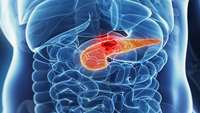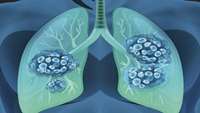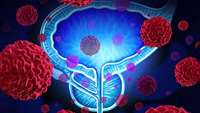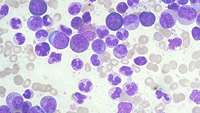Research identifies properties of stem cells that determine cell fate
Researchers from the University of California, Irvine have identified intrinsic cell properties that influence the fate of neural stem cells, affecting what type of brain cell they will form: neurons, astrocytes, or oligodendrocytes.
Researchers use brain cells in a dish to study genetic origins of schizophrenia
A study in Biological Psychiatry has established a new analytical method for investigating the complex genetic origins of mental illnesses using brain cells that are grown in a dish from human embryonic stem cells. Researchers at the University of California Los Angeles examined the process in which new neurons are designated for certain roles, and found that changes in gene expression over the course of neural development were significantly associated with genetic risk for schizophrenia.
A recipe for regenerating nerve fibers across complete spinal cord injury
Neuroscientists at UCLA, Harvard University and the Swiss Federal Institute of Technology have identified a three-pronged treatment that triggers axons—the tiny fibers that link our nerve cells and enable them to communicate—to regrow after complete spinal cord injury in rodents. Not only did the axons grow through scars, they could also transmit signals across the damaged tissue.
The Potential of CAR T Cell Therapy in Pancreatic Cancer
Pancreatic cancer has a dismal prognosis and effective treatment options are limited. It is projected to be the second most common cause of cancer related mortality in the United States by 2030 and there is urgent unmet need for novel systemic treatment options.
Anti-aging discovery reveals importance of immune system in clearing old cells
A compelling study from the Weizmann Institute of Science has revealed a new anti-aging strategy designed to help the immune system remove old and dysfunctional cells from the body.
Lung disease associated with dementia in later life
According to a recent study, lung disease in middle age could be a risk factor for dementia or cognitive impairment later in life. The findings have been published in the American Journal of Respiratory and Critical Care Medicine.
Albert Einstein Team Developing Prostate Cancer Metastatic Risk Genomic Assay
For men newly diagnosed with prostate cancer or patients previously treated, the risk of metastasis is a crucial determinant of whether to choose conservative management or undergo further treatment.
Alcohol may prime the brain for Alzheimers, but how?
Some studies have suggested that alcohol consumption could expose people to a heightened risk of developing Alzheimers disease later in life. But the mechanics behind this relationship have been unclear — until now.
Researchers discover an immune response associated with the development of idiopathic scoliosis (IS) in zebrafish
Idiopathic scoliosis (IS) is a complex genetic disorder that affects approximately 4 per cent of children worldwide, yet its underlying biological cause remains unknown.
New research on stem cell transplantation for myeloid cancers
Improving outcomes for patients with myeloid cancers who undergo stem cell transplantation is a focus of several studies to be presented by Dana-Farber Cancer Institute scientists at the American Society of Hematology (ASH) Annual Meeting Dec.












